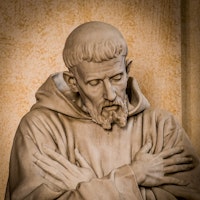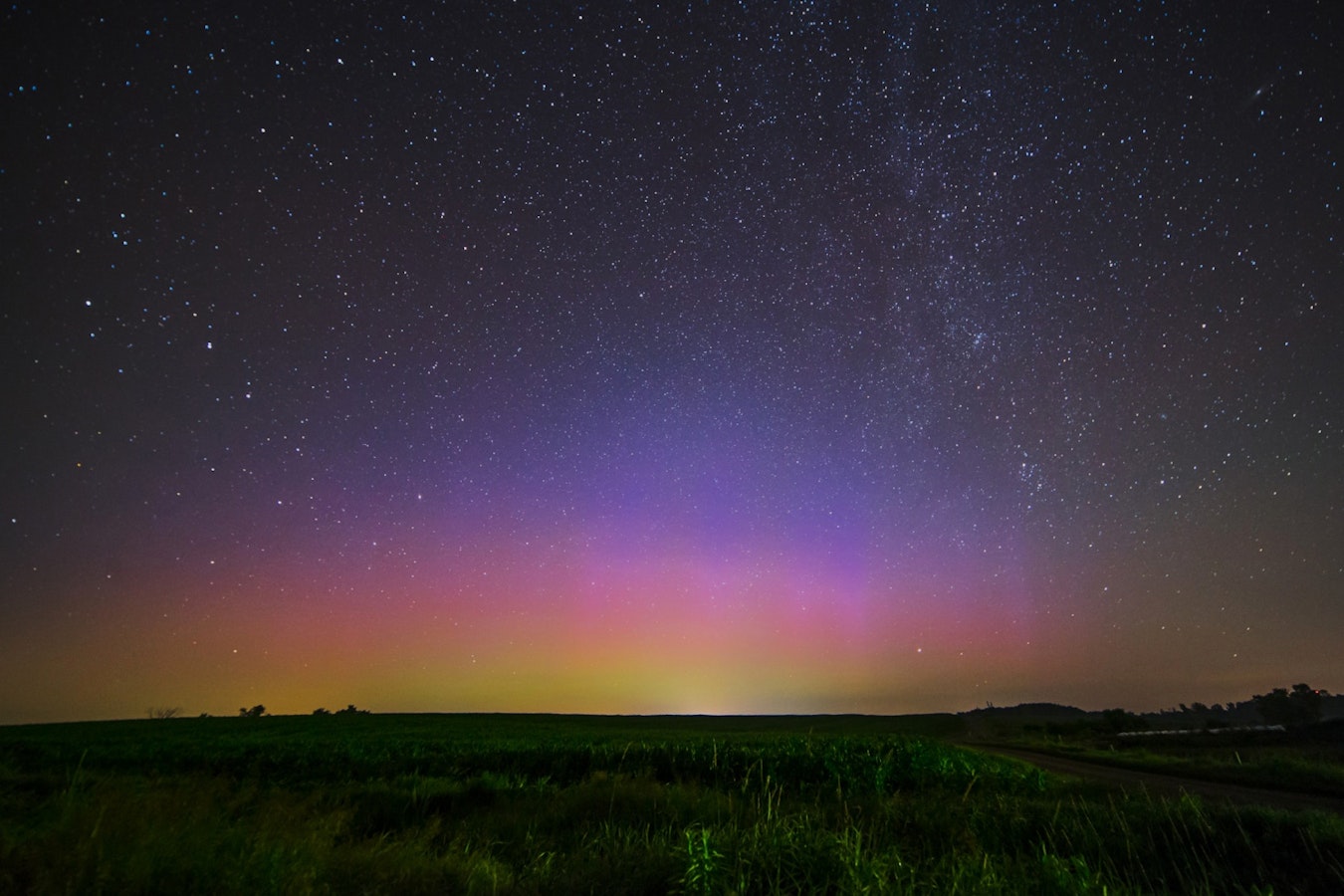Be praised, my Lord, with all your creatures, Especially Sir Brother Sun, Who brings the day, and you give light to us through him. How handsome he is, how radiant, with great splendor! Of you, Most High, he bears the likeness.
Be praised, my Lord, with all your creatures, Especially Sir Brother Sun, Who brings the day, and you give light to us through him. How handsome he is, how radiant, with great splendor! Of you, Most High, he bears the likeness.
Saint Francis of Assisi

Canticle of the Sun
Topic: Temperance & Humility
CANTICLE OF THE SUN
Most High, omnipotent, good Lord,
All praise, glory, honor, and blessing are yours.
To you alone, Most High, do they belong,
And no one is worthy to pronounce your name.
Be praised, my Lord, with all your creatures,
Especially Sir Brother Sun,
Who brings the day, and you give light to us
through him.
How handsome he is, how radiant, with great
splendor!
Of you, Most High, he bears the likeness.
Be praised, my Lord, for Sister Moon and the
Stars.
In heaven you have formed them, bright, and
precious, and beautiful.
Be praised, my Lord, for Brother Wind,
And for Air, for Cloud, and Clear, and all
weather.
By which you give your creatures nourishment.
Be praised, my Lord, for Sister Water,
She is very useful, and humble, and precious,
and pure.
Be praised, my Lord, for Brother Fire,
By whom you light up the night.
How handsome he is, how happy, how powerful
and strong!
Be praised, my Lord, for our Sister, Mother
Earth.
Who nourishes and governs us,
And produces various fruits with many-colored
flowers and herbs.
Saint Francis of Assisi (born Giovanni di Pietro di Bernardone, circa 1181 or 1182 in Assisi, Italy – died October 3, 1226, in Assisi) is remembered as one of the most beloved figures in Christian history, known for his simplicity, compassion, and profound reverence for all creation. The son of a prosperous cloth merchant, Francis grew up amid comfort and privilege. Yet, as a young man, he longed for the honor and adventure of knighthood. In 1202 he joined the Assisian forces in their war against the neighboring city of Perugia. Captured in battle and imprisoned for nearly a year, he returned home ill, weakened, and deeply shaken. His attempt to resume a knightly career soon afterward was halted by a sudden inner crisis, and a vision near Spoleto turned him back toward Assisi. These experiences broke open his ambitions and stirred in him a longing for a higher purpose. A mystical encounter with the crucified Christ in the ruined church of San Damiano finally led him to renounce his wealth and devote himself wholly to God.
Living without possessions, Francis sought to imitate the humility and love of Jesus, serving lepers, caring for the poor, and preaching peace wherever he went. He founded the Order of Friars Minor—commonly known as the Franciscans—calling his companions to a life defined by simplicity, brotherhood, and joyful dependence on divine providence. His message, at once tender and revolutionary, urged people to see the divine presence in every creature and to embrace a way of life attuned to the beauty and harmony of the natural world. Near the end of his life he composed the Canticle of the Creatures, a hymn of praise that celebrates Brother Sun, Sister Moon, and all beings as reflections of God’s overflowing goodness.
In his later years, Francis received the stigmata—the marks of Christ’s wounds—deepening his mystical union with the suffering and love of Christ. Though frail and nearly blind, he continued to radiate joy and gratitude until his death at the little chapel of the Portiuncula in 1226. Canonized just two years later, Saint Francis of Assisi has endured as a universal symbol of peace, humility, and compassion—a witness to the sacredness of all life and to the power of simplicity to reveal divine love in the midst of the world.
Wilson, Andrew, editor. World Scripture II. Universal Peace Federation, 2011, p. 134 [St. Francis of Assisi, Canticle of the Sun].

Saint Francis of Assisi
Copyright © 2017 – 2026 LuminaryQuotes.com About Us

St. Francis of Assisi, Canticle of the Sun
Of the several “cantica in vulgari” which St. Francis composed, the only one that has come down to us, as far as is known, is the “Praises of the Creatures,” or, as it is now more commonly called, “The Canticle of the Sun.”
The Canticle appears to have been composed toward the close of the year 1225 in a poor little hut near the Monastery of San Damiano, whither St. Francis had retired on account of his infirmities….
–Paschal Robinson, Translator [The Writings of St. Francis of Assisi (1905)].